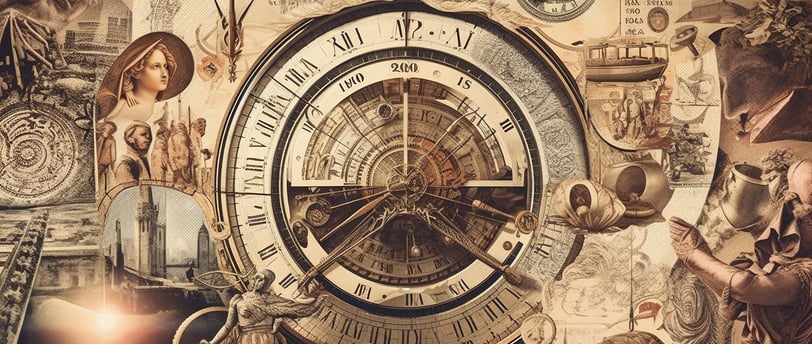Navigating the Ages: A Journey Through the History of Numerology
11/20/20232 min read


In the grand tapestry of mystical practices, few weave the threads of numbers into the fabric of destiny as elegantly as numerology. This ancient and profound system of divination has left an indelible mark on cultures across the globe. Join us as we embark on a captivating journey through time, exploring the rich history of numerology and uncovering the roots of this time-honored practice.
Ancient Beginnings:
The roots of numerology can be traced back to ancient civilizations, where scholars and mystics delved into the symbolic significance of numbers. The ancient Egyptians, for instance, assigned mystical qualities to numbers, intertwining them with the divine and using them in spiritual practices. Similarly, in ancient Greece, the mathematician and philosopher Pythagoras is often credited with formalizing the system that bears his name today.
Pythagoras and the Birth of Pythagorean Numerology:
In the 6th century BCE, Pythagoras, known for his contributions to mathematics, delved into the mystical properties of numbers. Pythagorean numerology, a cornerstone of modern numerology, emerged from his teachings. Pythagoras and his followers believed that numbers not only represented quantities but also possessed unique qualities and vibrations that could unveil the secrets of the universe.
The Middle Ages and Numerology's Resurgence:
Following the decline of classical civilizations, numerology experienced a resurgence during the Middle Ages. Scholars in the mystical traditions of Kabbalah and the Christian mystics turned to numbers as a means of understanding the divine order. The widespread interest in the mystical significance of numbers during this period contributed to the continued evolution of numerology.
Cultural Influences:
Throughout history, numerology has woven itself into the cultural fabric of diverse societies. In ancient China, for instance, the I Ching, a foundational text of Chinese divination, incorporated numerology principles. In India, the ancient texts of Vedas and Upanishads explored the spiritual dimensions of numbers. Similarly, in the Islamic world, scholars delved into the symbolic meanings of numbers, contributing to the development of numerology.
Modern Revival:
The 20th century witnessed a renewed interest in metaphysical and esoteric practices, leading to a resurgence of interest in numerology. Prominent figures in the field, such as Cheiro and Florence Campbell, further developed and popularized numerological systems. Today, numerology continues to captivate individuals seeking insights into their personalities, life paths, and spiritual journeys.
Conclusion:
From ancient civilizations to the modern era, the history of numerology is a testament to humanity's enduring fascination with the mystical qualities of numbers. It has evolved and adapted, weaving itself into the spiritual and cultural tapestry of diverse societies. As we explore the depths of numerology, we honor the wisdom passed down through the ages, recognizing that in the language of numbers, the secrets of the cosmos unfold, inviting us to embark on a journey of self-discovery and spiritual insight.
Unveil Your Cosmic Blueprint: Dive into Personalized Numerology Reports and Services for Profound Insights. Embrace Your Unique Path to Success and Fulfillment Now!"